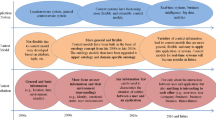Abstract
Typical ubiquitous computing environments contain a large number of data sources, in the form of sensors and infrastructure elements, emitting a huge amount of contextual data (called context) continuously that need to be processed and stored in some context repository. Usually, this data is for software system’s internal use to provide proactive services. Hence, it makes sense not to store this entire huge amount of data but to identify and remove some irrelevant data (garbage collecting context), summarize the left over and only store this summarized and more meaningful data. We believe that such a summarization will result in improved performance in query processing, data retrieval, knowledge reasoning and machine learning. Besides, it will also save the storage space required to store context repository. In this paper, we will present the idea and motivation behind context summarization and garbage collecting context and some possible techniques to achieve this.
This work is supported by grant No. R01-000-00357-0 from Korea Science and Engineering Foundation (KOSEF).
Preview
Unable to display preview. Download preview PDF.
Similar content being viewed by others
References
M. Weiser, The computer for the 21st century. In: ACM SIGMOBILE 1999 Review (1999)
Dey, A.K., et al.: A Conceptual Framework and Toolkit for Supporting Rapid Prototyping of Context-Aware Applications. Human-Computer Interaction (HCI) Journal 16 (2001)
Ngo, H.Q., et al.: Developing Context-Aware Ubiquitous Computing Systems with a Unified Middleware Framework. In: EUC 2004, pp. 672–681 (2004)
Franklin, M.J.: Challenges in Ubiquitous Data Management. In: Wilhelm, R. (ed.) Informatics: 10 Years Back, 10 Years Ahead. LNCS, vol. 2000, p. 24. Springer, Heidelberg (2001)
Jones, R.: The Garbage Collection, http://www.cs.ukc.ac.uk/people/staff/rej/gc.html
Hong, J.I., Landay, J.A.: Support for location: An architecture for privacysensitive ubiquitous computing. In: Proceedings of the 2nd international conference on Mobile systems, applications, and services (June 2004)
Berson, A., Smith, S.J.: Data Warehousing, Data Mining, and OLAP. McGraw- Hill, Inc., New York (1997)
Barbara, D., et al.: The New Jersey Data Reduction Report, Bulletin of the IEEE Technical Committee on Data Engineering. 20 (December 1997)
Qiao, L., et al.: Data streams and time-series: RHist: adaptive summarization over continuous data streams. In: Proceedings of the eleventh international conference on Information and knowledge management (November 2002)
Moore, D., Essa, I., Hayes, M.: Exploiting Human Actions and Object Context for Recognition Tasks. In: Proceedings of IEEE International Conference on Computer Vision 1999 (ICCV 1999), Corfu, Greece (March 1999)
Fayad, M., Schmidt, D.C.: Object-Oriented Application Frameworks. Communications of the ACM 40(10) (October 1997)
Author information
Authors and Affiliations
Editor information
Editors and Affiliations
Rights and permissions
Copyright information
© 2005 Springer-Verlag Berlin Heidelberg
About this paper
Cite this paper
Rasheed, F., Lee, YK., Lee, S. (2005). Context Summarization and Garbage Collecting Context. In: Gervasi, O., et al. Computational Science and Its Applications – ICCSA 2005. ICCSA 2005. Lecture Notes in Computer Science, vol 3481. Springer, Berlin, Heidelberg. https://doi.org/10.1007/11424826_119
Download citation
DOI: https://doi.org/10.1007/11424826_119
Publisher Name: Springer, Berlin, Heidelberg
Print ISBN: 978-3-540-25861-2
Online ISBN: 978-3-540-32044-9
eBook Packages: Computer ScienceComputer Science (R0)




